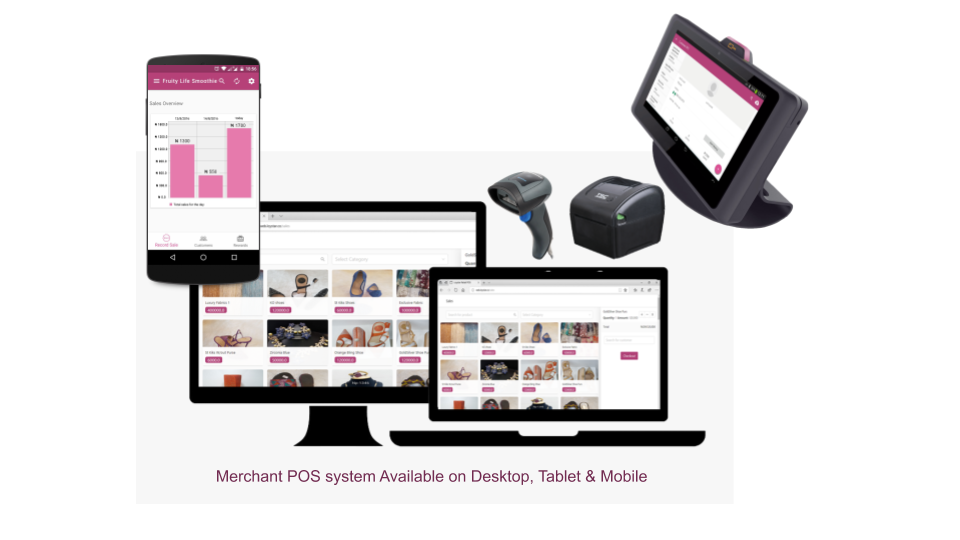Your Point of Sale (POS) system is very important to successful operations and the growth of your business. POS goes beyond being a tool for your customers to pay for their purchases. It is a crucial component of your business especially in terms of getting real-time data and providing customers with after sales services support. Hence it is important that you look out for certain key metrics when choosing a POS system for your business. In this blog, we touchdown on 7 things you need to pay attention to before choosing a POS system.
- Integration & Compatibility
Your POS system should not add to the challenges involved in running a business. So, you need to check if the POS system you are choosing for your business integrates well with your existing business tools. Is your POS compatible with your finance software, your website and even your employee management system? The extra time you will spend trying to track data from your POS system to interpret and feed into your other business systems and processes is best avoided when you have a POS that integrates well with your business tools. - Data Reporting
The importance of data reporting cannot be overemphasized for retail businesses. Getting key metrics and data points of your business operations help you make crucial decisions that better position your business for profitable growth. In choosing a POS that is able to support your business, you would want one that sends you reports daily, weekly and monthly. Typically you would get basic reportings like daily transactions volume and value and other reports that may be product-focused. However, you also want to look out for a POS that reports about customers, telling you your top spenders, the least spenders and everyone in-between. This information would empower you to be smart about your marketing and would surely save you money. - Bookkeeping
Every business can do with a little bit more efficiency and tidy accounts. So, why have untidy accounts when your POS can update your daily sales straight to whatever accounting tool your business uses? Frankly, your POS should allow for synchronicity with your bookkeeping tool in real time. Hence you have to look out for a POS that has this feature and is compatible with your accounting tool as well. - Mobility
As mobile technology advances and internet broadband becoming easily accessible, this unlocks a new wave of m-commerce possibilities. Selling at a fair or a pop-up shop? You shouldn’t have to dismantle your in-store setup to capture transactions, all you’ll need is a smartphone or tablet. You bumped into your old friend at a random place and you happen to have your merchandise for sale, you can capture the transaction right there and then on your mobile device. To support this kind of dynamism, you need a Point of Sale solution that is equally dynamic and supports any situation where trade can happen.
- Inventory Management
Effectively managing your inventory can be a real hassle especially during peak sales period if you don’t have a POS system that updates inventory and automatically performs routine inventory tasks. If you have multiple retail branches in addition to an e-commerce website, it is important you go for a POS that allows for multiple accounts as well as synchronizes transactions in real-time across online and offline channels. You don’t want customers ordering from your website and the product isn’t available in any of your stores. Features like tracking stock levels across outlets, restock reminders, and even kick-starting the purchase of new stock are worth looking out for. - Omni-Channel functionalityToday’s customers are omni-connected and to maximize your sales opportunities and not leave money on the table, it’s a wise decision to be present at these customer touch-points and in choosing a Point of Sale solution, you should look out for one that supports you whether you do business in a store or on-the-go, or whether you have an e-commerce store or you operate completely offline. The fact today is that you can sell anywhere and your point of sale system should be able to link the multiple sale channels and deliver an omnichannel experience to customers.
- Business Need
After all is said and done, what does your business need both short term and long term? This will determine whether you should choose a system that serves your stage of business or one that can grow with you as you scale. Although, cloud-based systems are preferable these days as it always ensures you have access to all your data in real-time with no fear of a non-cloud based system crashing and your data being lost. Take out time to analyze your business, its need, and growth plans to determine what POS will fit just right.
If after reading this post, you are in search of a point of sale solution that ticks all the checklist mentioned above, then look no further. The Loystar Point of Sale system is exactly what you need. It’s a flexible platform that can adapt to your need.
Fill the form below to get a copy of the Product Specification Brochure delivered immediately to your email




Thank you for this wonderful information. I want to start a supermarket. Please advise me, what is the best supermarket software that I can use. I need the one that is easy to use.
Hello Mercy, thanks for your comment.
Please reach out to us at hello@loystar.co for proper consultation.